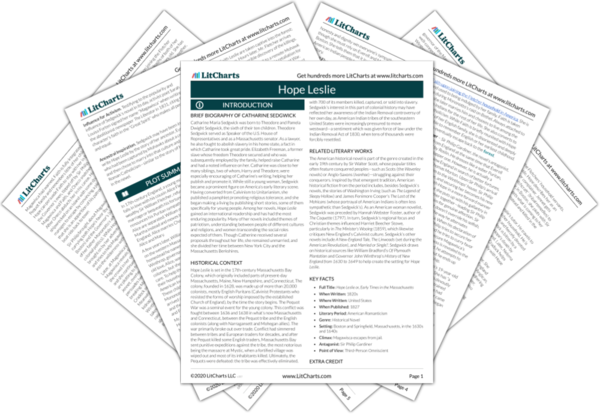AI ToolsNew
Tools to make learning and teaching easier
|
Previous
Volume 2, Chapter 10
|
Hope Leslie: Volume 2, Chapter 11 Summary & Analysis |
Next
Volume 2, Chapter 12
|


Upgrade to unlock the analysis and theme tracking for all of Hope LeslieHope Leslie!
Get LitCharts A+